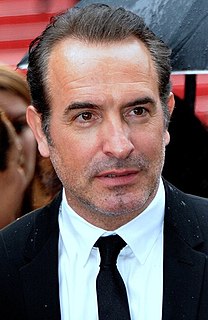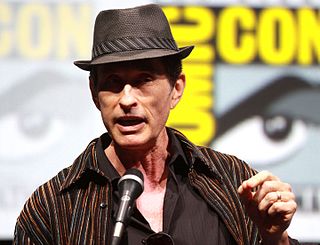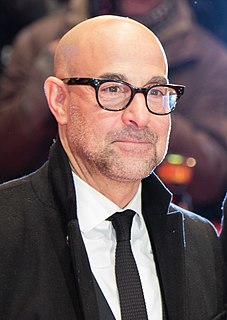A Quote by Michel Hazanavicius
Usually, when you do a period movie, you just recreate what you are shooting. You don't recreate the way you shoot it. I think I did the same thing here as I did in the OSS 117 movies. I recreated the way to shoot that period, because to me, like what I was saying about the Steadicam, there's no sense to do a Steadicam shot in the 1920s because you have never seen the '20s like that. You can't believe there was a Steadicam in the 1920s. I believe it's a continuation of the OSS 117 in a way but without the irony.
Related Quotes
But strangely, [in] the original Matt Helm books, he's just this super hardass assassin. They sort of made it into a sexy romp for the movies. The books are very, very dark. I also watched 'OSS 117: Cairo, Nest Of Spies,' which is a French film. They just made a second one, I think, which is based on like, 100 novels. They're just fantastic. They're set in the '60s. A lot of the visual inspiration definitely came from 1960 James Bond movies and 'OSS 177' and also 'Pink Panther' movies.
I think everything happens for a reason. With my game being the way it is, if I did shoot 80 percent, I'd be a harder person to deal with. It just keeps me humble. Just imagine me in my game shooting the same percentage that Reggie Miller shoots. I wouldn't even talk to you guys because I wouldn't have to.
I don't feel that no big stone should be put over my head, saying he did this, he did that. Unless there's something that I really did do. I believe I'm just ordinary. And I'd like for people to think of me that way, as just a guy that tried. Wanted to be loved by other people because he loved people.
Filmmaking isn’t if you can just strap on a camera onto an actor, and steadicam, and point it at their face, and follow them through the movie, that is not what moviemaking is, that is not what it’s about. It’s not just about getting a performance. It’s also about the psychology of the cinematic moment, and the psychology of the presentation of that, of that window.
Creation is a sustained period of bliss, even though the subject can still be very sad. Because there's the triumph of coming through and understanding that you have, and that you did it the way only you could do it. You didn't do it the way somebody told you to do it. You did it just the way you had to do it, and that is what makes us us.
No offense to the Canadians, but I believe location is like a character, and authenticity really matters. When you're in a place like New York or D.C., you just can't beat it, and it's so hard to recreate because they are both such distinctive places. I think it's pretty easy these days to tell films that are shot in Toronto.
All my cuts are always about three hours, at the start, mainly because any scene in the movie that's 90 seconds, I probably shot a five-minute version of. If you just extrapolate that through the whole movie, I have a very long version of every scene, usually because, if there's one funny joke, I'll shoot five because I don't know if the one I like is going to work. I'll get back-ups because my biggest fear is to be in previews, testing the movie, and a joke doesn't work, but I have no way to fix it because I have no other line.
So many times, I will have people tell me what I did when I was younger. There's so much being written [about] the early Beatles period, and even pre-Beatles period. And people will say, "Oh, he did that because that, and that happened because of that." And I'll be reading and think, "Well, that didn't happen" and, "That's not why I did that." Like anyone's history, you remember what went down better than people who weren't there.




































